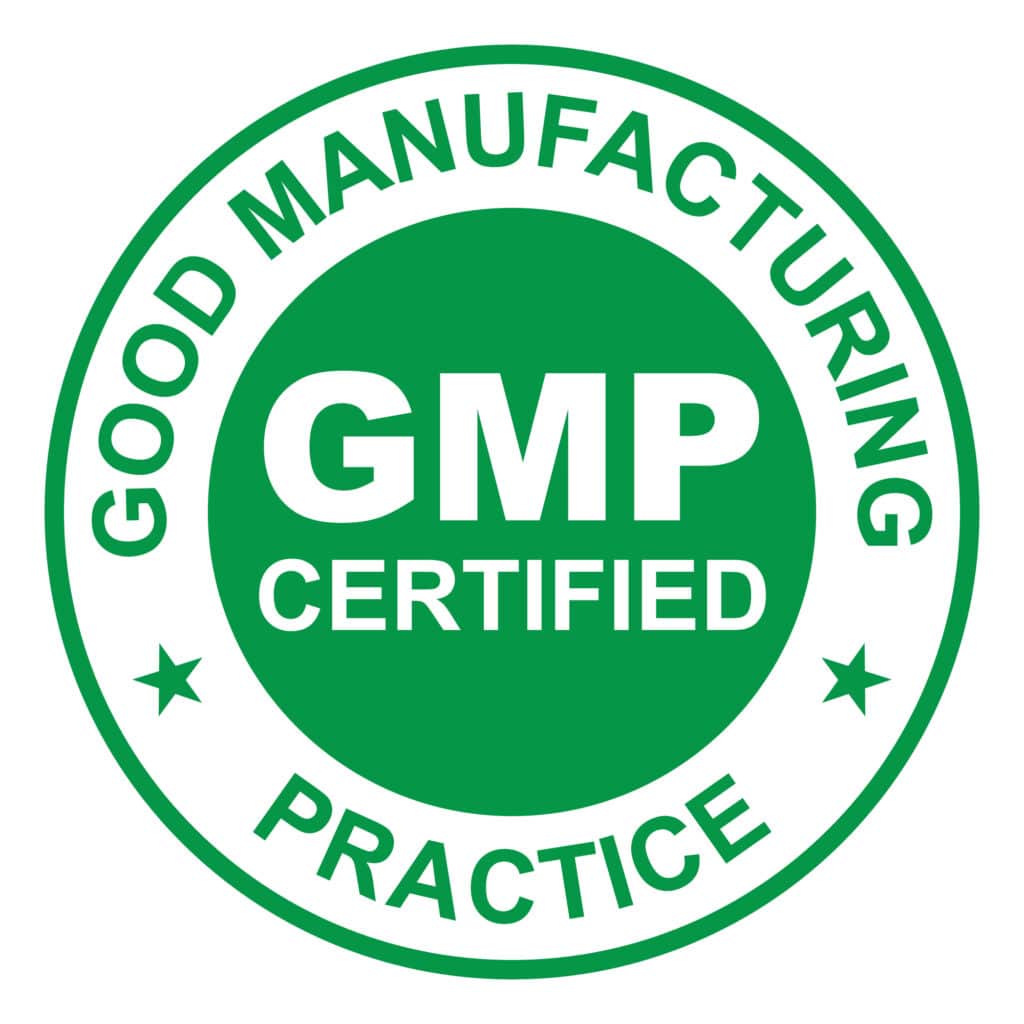
Why GMP Certified Supplement Manufacturing Matters and How TCI Biotech Can Help
What Does GMP Certified Mean in Supplement Manufacturing?

What is GMP?
Good Manufacturing Practices (GMP) are the baseline quality system that controls people, premises, equipment, materials, and records so that products are made and tested in a consistent and controlled way. In supplements, U.S. dietary supplement cGMPs (21 CFR Part 111) demand a formal production and process control system, along with master manufacturing records and batch records to lock down repeatability. This is the basis of GMP certified supplement manufacturing, which links everyday operations to written procedures and documented evidence of control. As a result, lot-to-lot quality, safety, and identification are predictable.
Ensures Product Quality and Safety
GMP guidelines discourage contamination and mix-ups with cleanliness, trained staff, hygienic facilities, and maintained equipment. They also need ingredient identity testing (you must test each dietary ingredient for identity before use), in-process controls, and label or packaging controls with lot traceability and reconciliation. Such controls oversee ingredient uprightness, label claims, and cross-contamination risk. So, they make quality control testing a routine.
The FDA found 776 dietary supplements containing unapproved medications from 2007 to 2016, but only 46% were voluntarily recalled. Along these lines, GMP controls deter this risk.
Regulatory Compliance
For U.S. brands, compliance implies satisfying the FDA’s 21 CFR Part 111 if you manufacture, package, label, or hold dietary supplements. Meanwhile, the FDA verifies this through inspections and enforcement. GMP certification itself comes from independent auditors, including NSF/ANSI 455-2 and USP GMP audit programs, who assess your facility against FDA cGMPs and recognized global GMP principles. Using third-party audits strengthens retailer and regulator confidence, as well as supporting international best practice. This is why GMP certified supplement manufacturing might be chosen even beyond the legal minimum.
Improved Operational Efficiency and Continuous Improvement
GMPs need clear SOPs, training, and roles. 21 CFR 111 even demands training documentation and qualified supervisors. Master and batch records standardize workflows and speed investigations. For lower risk, current quality systems include deviation management, change control, internal audits, and CAPA. Such pharma-grade principles of continual improvement are captured in international GMP quality system guides and help teams produce right-first-time.
Why GMP Certification Matters for Supplement Brands and Consumers
Market Access and Competitive Advantage
GMP certified supplement manufacturing proves you fulfill U.S. dietary supplement GMP and have controls for specs, testing, and records. That is needed for lawful distribution in the U.S., and it shortens vendor qualification for buyers. Third-party GMP audits under NSF/ANSI 455-2 give retailers documented assurance. NSF/ANSI 173 product certification verifies label claims and contaminant limits. No doubt, such signals decrease procurement risk and build buyer trust.
Furthermore, in 2024, CRN stated that 75% of U.S. people consume nutritional supplements, and this shows how demand makes verified GMP compliance a key buyer filter.
Enhanced Brand Reputation
Certification brings outside scrutiny. Auditors review batch records, corrective actions, complaint handling, and supplier qualification at the facility level, and many programs entail ongoing surveillance. DS cGMP rules need firms to hold reserve samples for one year past the shelf-life date, or for two years from the last distribution if no shelf-life is used – documentation auditors routinely review. NSF’s GMP programs use structured audits against recognized criteria.
USP’s “Verified” adds independent testing and label review. That kind of third-party testing shows transparency and operational discipline that consumers and B2B partners can verify.
Global Market Opportunities
WHO GMP principles establish a baseline for quality systems, documentation, and controls. An ISO 22000-certified food-safety management system combines HACCP and is recognized throughout supply chains. In a similar context, its 45,459 approved certifications in 2022 demonstrate global supply-chain acceptance of HACCP-based food safety systems.
Meanwhile, combining these with NSF/ANSI supplement standards, such as 173 for product certification, helps foreign distributors match your controls with their due diligence checklists. That alignment eases qualification for exports and technical partnerships.
Key Steps in the GMP Certification Process

- Understand GMP Requirements: Map your quality system to GMP pillars. Documented procedures, skilled personnel, controlled premises and equipment, validated processes, and QC/QA with complaint and recall handling. For U.S. dietary supplements, match controls and records with 21 CFR Part 111 (specs, MMR/BPR, lab controls, etc.). WHO GMP is a global baseline for facilities, production, and quality control.
- Prepare for Certification: Run a gap assessment against the target standard and your legal baseline. Then, close gaps via formal CAPA. Do internal audits, train auditors, and verify CAPA effectiveness before inviting a third-party. FDA’s small-entity guide clarifies Part 111 expectations, and auditor training frameworks structure your checks.
- Choose Certifying Authority: Select a scheme and body in your market and scope. Examples are NSF for NSF/ANSI 455-2 (dietary supplements), SGS for GMP audits across food or cosmetics, and UL Solutions for supplement testing or compliance programs. See accreditation, geographic coverage, and audit frequency before you sign.
- Submit Application and Documentation: Your application defines sites, processes, and product scope, along with key documents. For NSF/ANSI 455-2, pre-audit packages, including org chart, site plan, process flow, SOP index, product list, and shift patterns, are due at least one business week before the audit. Post-audit CAR cycles might run on tight 10-10-5 day windows. Build time for evidence collection and approvals.
- On-Site Inspection and Audit: Auditors sample how you control premises and equipment, sanitation, utilities, and process controls. They verify training, supplier qualification, labeling and packaging, deviations and CAPA, and recalls. You may expect deep digs into master manufacturing records, batch production records, lab methods, and QC results. They also review how you investigate complaints and returns.
- Certification Decision: After the audit, the certifier reviews the report and your corrective-action plan. Competent personnel issue the decision once evidence is accepted. Unresolved or critical nonconformances can trigger follow-up audits, suspension, or denial until CARs are closed. Many programs formalize this CAR-review flow.
- Maintain Compliance: You should treat certification as a cycle. Maintain internal audits, management review, change control, and training on a schedule. Track KPIs and stability, as well as refresh risk assessments. Programs can demand ongoing monitoring (for instance, a monitoring audit within six months in some cases) and an annual audit to retain status. That’s the key to GMP certified supplement manufacturing.
Common Challenges in Obtaining GMP Certification
- High Implementation Costs: Capital comes first. Cleanrooms and HVAC must be designed and qualified, which influences CAPEX and utilities. Equipment, utilities, and processes need IQ/OQ/PQ with documented validation. Cleaning validation increases work. QC labs, environmental monitoring, calibration, audits, and staff training raise ongoing OPEX. For GMP certified supplement manufacturing, these are unavoidable.
- Cleanroom buildouts run $100-$1,000+ per sq ft, and HVAC alone accounts for most of that. Third-party GMP audits can cost €1,600 per auditor per day, and two auditors over two days = €6,400. Formal GMP courses run $2,450-$2,650 per attendee.
- Complex Regulatory Requirements: Rules depend on product and region, and your QMS must match them. In the U.S., dietary supplements follow 21 CFR Part 111 with defined quality control, records, and training. EU medicinal products follow EudraLex Volume 4 and annexes, along with heavy validation and documentation. APIs are under ICH Q7, which adds API-specific controls. Gap-assess each clause before procedures.
- Global Standard Variations: Global guides are synced, but inspectors interpret details differently. PIC/S tracks EU GMP closely, but terms and emphasis depend on the authority. U.S. supplement audits apply Part 111, not EU GMP, and evidence expectations differ. Use local experts and pre-audits to tune SOPs and records to the target market.
Partner with TCI Biotech for GMP Certified Supplement Manufacturing
Partner with us at TCI Biotech, and you get GMP certified supplement manufacturing with end-to-end compliance. Essentially, our Precise iManufacturing Center passes global GMP and GMPC, as well as FSSC 22000, SQF, HACCP, ISO 9001/22000/22716/14001/50001, ISO 45001, BRC, and ISO 14644 cleanroom controls. We also hold U.S. NSF GMP, Taiwan TFDA GMP, and Australia TGA certifications, all maintained through regular audits.
We manufacture across Taiwan, Shanghai, and Utah and cover liquid drinks and functional foods. Our controls cover HACCP plans, ISO-managed processes, ISO 17025 testing, and a 100% safety product traceability system of ingredients to finished goods. We also tackle FDA listings, China food permits, Indonesia BPOM, and HALAL (MUI, JAKIM, THIDA) to speed market entry with compliant labels. So, quality, safety, and innovation are in every stage.
Contact us to learn more or request a custom solution for your supplement formulation.